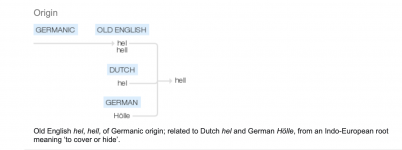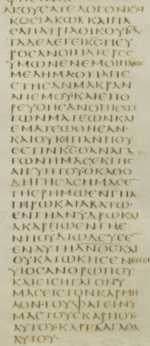I am no Greek or Hebrew scholar so perhaps you know more than I do but contrary to popular belief, God did NOT give the Word through Hebrew alone, God was speaking of a certain tribe that was there at the time the authority was given, Scribes from all tribes eventually recorded the Word with no prejudice toward each other.
God said "I shall do a new thing" when revealing his covenant with the gentiles, he divinely orchestrated the "new language" translation for the preparing and grafting in of the gentiles, his choice was Greek and its no different from when the morning stars of the reformation began translating the Latin into the common language of the lay man.
God is Sovereign and Just, he handed the early Christians the Scriptures via the 72 translators so that they have them handy for witnessing to unbelievers and for the grafting in of gentiles just as he promised
6 translators from each of the 12 tribes came up with the same exact translations of the Hebrew to Greek
I put all of these comments together because they all go pretty much to the same point.
The belief that the LXX is divinely inspired is certainly not new. Certain individuals over time have made the same claim regarding other translations as well (i.e. the Vulgate, KJV, etc.) Personally I do not believe any translation is divinely inspired. Moreover proving such a
proposition is really impossible. Nevertheless it is possible to collect objective evidence for a position in order to evaluate it fairly and honestly.
The first thing I would like to examine (at least in part) is the "Letter of Aristeas." I will just for the sake of argument accept it is genuine and reliable. A careful reading will reveal an important fact.
Aristeas 10 - We were present when the question was put to him, “How many thousand books are there in the library?” His reply was, “Over two hundred thousand, O King. I shall take urgent steps to increase in a short time the total to five hundred thousand. Information has reached me that the
lawbooks of the Jews are worth translation and inclusion in your royal library.
The first thing to the note is word "lawbooks." The clear implication of that term is that it is a reference the Pentateuch (i.e. Torah, Law of Moses).
We also have a clear reference to Moses and his law in the letter.
Aristeas 114 -n "For you must not fall into the degrading idea that it was out of regard to mice and weasels and other such things that
Moses drew up his laws with such exceeding care."
Josephus also makes this same point in Apion 2:45-46:
"And for his successor Ptolemy, who was called Philadelphus, he did not only set all those of our nation free, who were captive under him, but did frequently give money [for their ransom]; and, what was his greatest work of all, he had a great desire of knowing
our laws, and of obtaining the books of our sacred scriptures: accordingly he desired that such men might be sent him as might interpret
our law to him; and in order to have them well compiled, he committed that care to no ordinary persons, but ordained that Demetrius Phalereus, and Andreas, and Aristeas; the first, Demetrius, the most learned person of his age..."
These are our two earliest sources on the origin of the LXX.
Now why is this important and what does it show? It show that the whole of the Septuagint was not commissioned Ptolemy but ONLY the Law and not the prophets and the writings. Neither one of those is mentioned in the "Letter of Aristeas." Thus there is no evidence that the 72 elders has any hand in the translation of the prophets or the writings, again, only the Law.
Second, there is a more troubling aspect to the "Letter of Aristeas."
Aristeas 16 -
These people worship God the overseer and creator of all, whom all men worship including ourselves, O King,
except that we have a different name. Their name for him is Zeus and Jove. The primitive men, consistently with this, demonstrated that the one by whom all live and are created is the master and Lord of all. In your excelling all men by your nobility of soul, I beg you to release those held in slavery.”
The author of the letter is claiming that the God of the O.T. is the same god as
Zeus and
Jove and the only difference is the name. It is disturbing that this document would claim that the God of the Scriptures is to be identify as the same god as these pagan deities.




